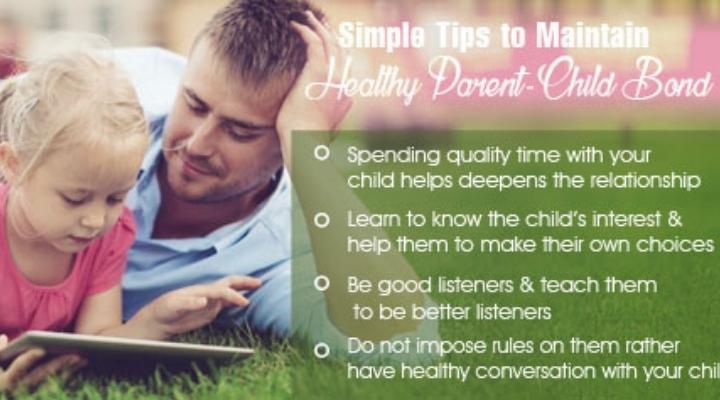How to Build a Strong Parent-child bond
The parent-child bond is one of a person’s most profound and influential relationships. In this article, we will explore, How to build a strong Parent-child bond and offer practical strategies for nurturing this vital connection. It serves as the foundation upon which a child’s emotional, psychological, and social development is built. A strong parent-child bond fosters a sense of security and belonging but also contributes significantly to a child’s overall well-being and future success.
How to Build a Strong Parent-child bond
Understanding the Parent-Child Bond
Understanding the Importance of a Strong Parent-Child Bond
The parent-child bond, often referred to as attachment, is rooted in the emotional connection formed between parents or caregivers and their children. This bond begins to develop from the moment a child is born and continues to evolve through infancy, childhood, adolescence, and into adulthood. A strong parent-child bond provides numerous benefits for both children and parents:
1. Emotional Resilience-
Children with strong bonds to their parents tend to be more emotionally resilient. They feel secure in the knowledge that they have a reliable source of support to turn to in times of stress, uncertainty, or anxiety.
2. Social Skills-
A secure parent-child bond lays the foundation for healthy social development. Children who experience nurturing relationships at home are more likely to develop empathy, effective communication skills, and the ability to form healthy friendships.
Related- 6 Ways To Stop Your Babies From Thumb-Sucking
3. Academic Success-
The presence of a strong parent-child bond has been linked to improved academic performance. Children who feel supported and valued by their parents are more likely to have a positive attitude toward learning and engage actively in their educational pursuits.
4. Self-Esteem-
A secure attachment with parents contributes to healthy self-esteem. When children receive consistent love and attention, they develop a positive sense of self-worth, which can have a lasting impact on their self-confidence and resilience.
5. Behavioral Regulation-
Children with strong bonds to their parents are more likely to develop effective emotional regulation skills. They learn how to manage their feelings and behaviors by observing their parents’ guidance and support.
Strategies and Tips for Developing a Strong Parent-Child Relationship
1. Responsive Parenting-
Responsiveness is at the core of building a strong bond. Respond promptly and warmly to your child’s needs, whether they’re physical, emotional, or psychological. This builds a sense of trust and security.
2. Quality Time-
Spend meaningful time with your child. Engage in activities you both enjoy and create opportunities for open communication. Whether it’s reading, playing games, or simply talking, this dedicated time fosters connection.
3. Active Listening-
Pay attention when your child speaks. Listen actively without interrupting, and show empathy for their feelings and experiences. This communicates that their thoughts and emotions are valued.
You can also go for 7 Fun & Exciting Monsoon Activities For Kids!
4. Consistency-
Consistency in your interactions, discipline, and routines provides a sense of stability that is crucial for a strong bond. Children thrive on predictability and knowing what to expect from their parents.
5. Unconditional Love-
Let your child know that your love is unwavering and not contingent upon their achievements or behavior. This creates a safe space for them to explore their identity and express themselves freely.
6. Respect Their Individuality-
Recognize and celebrate your child’s unique qualities and interests. Respecting their individuality fosters a sense of autonomy while also reinforcing your support.
7. Open Communication-
Create an environment where your child feels comfortable discussing their thoughts, feelings, and concerns. Encourage questions and provide honest, age-appropriate answers.
8. Empower Decision-Making-
As your child grows, involve them in decision-making processes. This can range from choosing their clothes to participating in family decisions, promoting a sense of responsibility and empowerment.
9. Be a Role Model-
Demonstrate the values and behaviors you wish to instill in your child. They learn by observing, so modeling kindness, empathy, and effective communication will have a lasting impact.
10. Celebrate Achievements-
Acknowledge and celebrate your child’s achievements, no matter how small. This reinforces their sense of accomplishment and shows that you take pride in their efforts.
Related- 6 Healthy & Tasty Breakfasts For Your Kids- You Must Know
11. Navigate Challenges Together-
Life is filled with ups and downs. When challenges arise, approach them as a team. Working together to find solutions teaches problem-solving and reinforces your supportive role.
Challenges and Solutions-
Building a strong parent-child bond is not without its challenges, especially as children grow and their needs change. Adolescence, for instance, often presents new dynamics and communication hurdles. During this phase:
1. Respect Their Independence-
Adolescents seek independence and autonomy. While it’s important to maintain your supportive role, give them space to explore their identity and make decisions.
2. Stay Open-Minded-
Your child’s opinions and beliefs might differ from yours. Approach discussions with an open mind, fostering an environment where differing viewpoints can be explored without judgment.
3. Effective Communication-
Adolescence can bring communication barriers. Practice active listening and be patient even when discussing difficult topics. Maintain a balance between offering guidance and allowing them to express themselves.
4. Maintain Boundaries-
Adolescents might challenge boundaries, but these are important for their well-being. Communicate the reasons behind rules and limits, promoting understanding rather than strict control.
Long-Term Impact
The effort invested in building a strong parent-child bond yields lifelong benefits. A securely attached child is more likely to form healthy relationships, experience lower levels of anxiety, and navigate life’s challenges with resilience. As children transition to adulthood, the bond transforms into a supportive adult-adult relationship, characterized by mutual respect, emotional closeness, and a continued source of guidance.
Building a strong parent-child bond is a journey that requires time, effort, and dedication. By prioritizing unconditional love, effective communication, quality time, and fostering independence, parents can lay the groundwork for a lifelong connection with their children. This bond serves as a source of stability, support, and joy, influencing every aspect of a child’s development and well-being. As parents, investing in this relationship is one of the most rewarding and impactful gifts you can give to your child.
Relatable – 21 Most Famous Rhyming Poems For Kids
Frequently Asked Questions-
How can I build a strong parent-child bond from an early age?
Building a strong parent-child bond from an early age involves consistent nurturing and responsiveness. Engage in activities that encourage interaction and connection, such as reading together, playing games, and engaging in gentle physical touch like cuddling. Respond to your child’s cues promptly and with warmth, fostering a sense of security. As your child grows, adapt your interactions to their developmental stage, always prioritizing open communication and quality time spent together.
How does active listening contribute to a strong parent-child bond?
Active listening is a cornerstone of a strong parent-child bond. It involves giving your child your full attention when they’re speaking, making them feel heard and valued. By actively listening, you show empathy and understanding, which in turn encourages your child to share their thoughts, feelings, and concerns. This practice strengthens your connection and teaches your child the importance of effective communication in relationships.
What role does quality time play in building a strong bond with my child?
Quality time is crucial for building a strong parent-child bond because it creates opportunities for meaningful interaction and shared experiences. Engaging in activities you both enjoy fosters positive memories and associations. During these moments, you can have open conversations, express your love, and demonstrate your willingness to invest time in their interests. Quality time communicates that your child is a priority in your life, fostering a sense of connection and security.
How can I maintain a strong bond with my child during their teenage years?
Maintaining a strong bond with your teenager requires adapting your approach while still providing support and guidance. Respect their growing need for independence while staying involved in their lives. Communicate openly, actively listen to their opinions and concerns, and avoid being judgmental. Keep lines of communication open even when faced with challenging topics, and make an effort to spend quality time together. Demonstrating understanding and respect for their individuality while remaining a source of stability can help them navigate the teenage years successfully.
What are some effective strategies for building a strong bond when dealing with a busy schedule?
Balancing a busy schedule with building a strong parent-child bond can be challenging, but it’s possible with intentional effort. Prioritize quality over quantity when it comes to time spent together. Create routines that allow for consistent interactions, such as family meals or bedtime routines. Make the most of brief moments, such as discussing your child’s day during car rides or before bedtime. Utilize technology for communication if you’re physically apart, like sending thoughtful messages or engaging in video calls. Remember that it’s the quality of your interactions that matters most in strengthening the bond, even amid a busy schedule.










